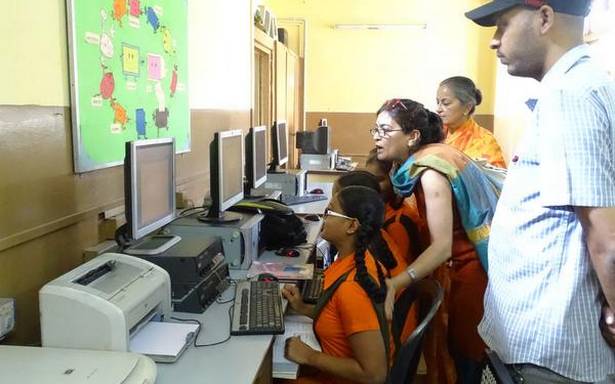The girl students belong to socially backward classes and minority communities living in nearby slums and rural areas
An initiative taken by a girls’ school here for providing education to the students from marginalised communities through video-conferencing during the pandemic has been praised as an effort to reduce digital divide. The free of cost online education was started after its study centres were closed in the lockdown.
Vimukti Girls’ School, situated in Pratap Nagar on the outskirts of Jaipur, has provided mobile tablets containing various educational apps to the girls to facilitate online learning within their own social environment. The girls, belonging to socially backward classes and minority communities, live in the nearby slums and rural areas.
The school has also launched a “mother mentorship” programme to address the need for empowering girls and changing the gender norms in the local communities. The girls’ mothers having some basic literacy and willing to work as volunteers have been connected with the drive to generate digital awareness among other parents and girls.
The School of Development Studies (SDS) at the Indian Institute of Health Management Research (IIHMR) here has taken up a study of the model developed by the school to define the approaches for delivery of quality education to marginalised girls. As part of its inter-disciplinary research, the SDS has examined the initiative to promote inclusiveness and diversity in education.
SDS faculty member Ratna Verma said here on Wednesday though the majority of educational institutions had switched to online mode of teaching during the pandemic, this model was laudable because of its potential to deal with vulnerability, discrimination and negligence faced by marginalised girls. “Other such initiatives do not address the issue of gender disparities within the family, apart from the low Internet access for the poor,” Dr. Verma said.
Vimukti Girls’ School Principal Prachi Jain said nine sessions of video-conference learning had been completed so far, with both the teachers and students exploring new possibilities amid the uncertainty and resource insufficiency. Online groups have been created to exchange relevant information, class links and subject-wise homework.
Ms. Jain said the strategy to provide gadgets and educational contents to girls was not only aimed at reducing their exclusion, but also at ensuring the parents’ participation in the girls’ education. The assistance came through the Youth Online Learning Opportunities campaign of U.S.-based voluntary group Edu-Girls.
Source: Read Full Article

